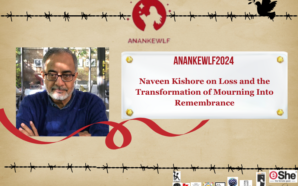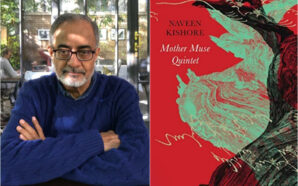On the surface, it’s encouraging that over the past three decades the overall percentage of women receiving degrees in Science, Technology Engineering or Maths (STEM) disciplines has increased. However, it’s very dispiriting that this has not translated into actual STEM careers for women. The main reason for this is that even though women reached parity in the percentages of degrees received in STEM disciplines, the focus has been on life sciences. Numbers remain low in subjects like Geo-sciences, Mathematics and Physical Sciences, and in Engineering and Computer Sciences, which have emerged as the fastest growing STEM fields with the highest workforce demand and pay, the percentage of women has either dropped or remained stable.
Focusing on the UAE, there is a reverse gender gap at school and university level, with girls outnumbering boys in STEM subjects. However within the first two years of working, women drop out in large numbers from STEM careers, creating a pool of untapped female talent.
So why should anyone care about this inequality and what are the drivers and reasons behind attracting and securing women in the STEM workforce? It’s a topic that has pre-occupied me for many years and was the primary motivation behind the establishment of The Meera Kaul Foundation which seeks to empower women and help them grow in their careers. Established in 2011, the Foundation works with individuals and corporations to address issues of gender bias and eradicate inequality by running gender sensitization initiatives and campaigns to raise awareness.
Focusing on the UAE, there is a reverse gender gap at school and university level, with girls outnumbering boys in STEM subjects. However within the first two years of working, women drop out in large numbers from STEM careers, creating a pool of untapped female talent.
More specifically, WiSTEM, the Women in STEM program of The Meera Kaul Foundation is committed to growing the involvement of women and girls in the fields of science, technology, engineering, and mathematics by increasing the engagement of girls with STEM subjects in formal and informal environments, encouraging mentoring to support women during their academic and professional experiences, and strengthening efforts to retain women in the STEM workforce.
Evaluating the current STEM landscape, it’s concerning to learn that product development and problem solving is mostly spearheaded by male engineers, yet 50% of users of those products are women. And it makes sense to include women in these processes – their point of view and perspectives should be encouraged from the earliest stages of the design and creation process.
There is a pressing need to provide women, that comprise 50% of the population, access to science & technology education and careers, to leadership positions, to positions of influence like academia and governments, to decision-making roles. Attracting women into STEM workforce can directly enhance innovation, prospects of discovery and impact competitiveness. Women can bring in a fresh perspective into these industries that have largely been male arenas. And finally, looking at the pure economics of it, STEM careers pay much better than any other jobs, and for true empowerment women need to have access to these higher-paying jobs.
Combatting barriers and social stigmas is indisputably required as there is a clear and direct link between female labour participation and economic benefits and so it is in the interest of governments to create policies that encourage women to join the productive workforce.
Yet, despite the strong business and economic case in favor of women joining STEM fields, there is still a drought of female participation in the workforce. And there are many reasons for it, both social and personal. The biggest barriers to women staying a productive part of the STEM workforce include the uncompromising balance of family and work-life, the lack of infrastructure and a lack of pro-family public policies of support services. In addition, the social expectations that women will not work continue to pervade and quash any potential will or endeavor.
Combatting these barriers and social stigmas is indisputably required as there is a clear and direct link between female labour participation and economic benefits and so it is in the interest of governments to create policies that encourage women to join the productive workforce.
The pitching of STEM as potential careers to women should be taken up by educators and policy makers, and the perception of the labour market as a male dominated environment needs to be changed. Encouraging closer collaboration between education and businesses would also help eradicate the demand-supply imbalance.
Bringing about a crucial and long lasting change is something that women can do by taking control of their career path and taking firm corrective action to ensure a positive and progressive trajectory. Incubating and supporting female entrepreneurship in positive environments should be actively encouraged, as should the stimulation and cementing of connections between groups, families and students. Through efficient communication women will be able to compete on an equal par with their male peers, not being afraid to “ask for more”, whether that be monetary reward through a bonus or salary increase, or a promotion to the Executive Board.
If you found the above topic of interest, please follow us on Facebook at https://www.facebook.com/meerakaulonlin, visit the website on www.womeninstem.com or get involved by contacting us on
About WiSTEM
WiSTEM is one of the core Programs of the Meera Kaul Foundation that runs several initiatives focused on women in STEM. WiSTEM provides an engaging platform for Academia, Governments, Corporates and Women Executives, Entrepreneurs and Leaders to interact, educate, mentor, guide as well as share knowledge and experiences for inspiring a global shift in the attitude towards Women in STEM.
WiSTEM also organizes the WiSTEM Conference & Awards, an annual initiative brought forward by The Meera Kaul Foundation to offer guests across the MENA region an unrivalled opportunity to debate the key issues affecting the progression of women in traditionally male dominated industries. The third edition of the WiSTEM Conference is scheduled for October 2016. For further information, to register or get involved, visit the website on www.womeninstem.com or contact us on shikha@meerakaul.com.
About The Meera Kaul Foundation
The Meera Kaul Foundation works with corporations and individuals all over the world to empower women, eradicate their economic marginalization in workplaces, create entrepreneurial opportunities for women and address issues of gender bias and inequality through education, programs, seminars and conferences. The Foundation brings forth the acumen of Silicon Valley to help other organizations for women to work together and support each other.











